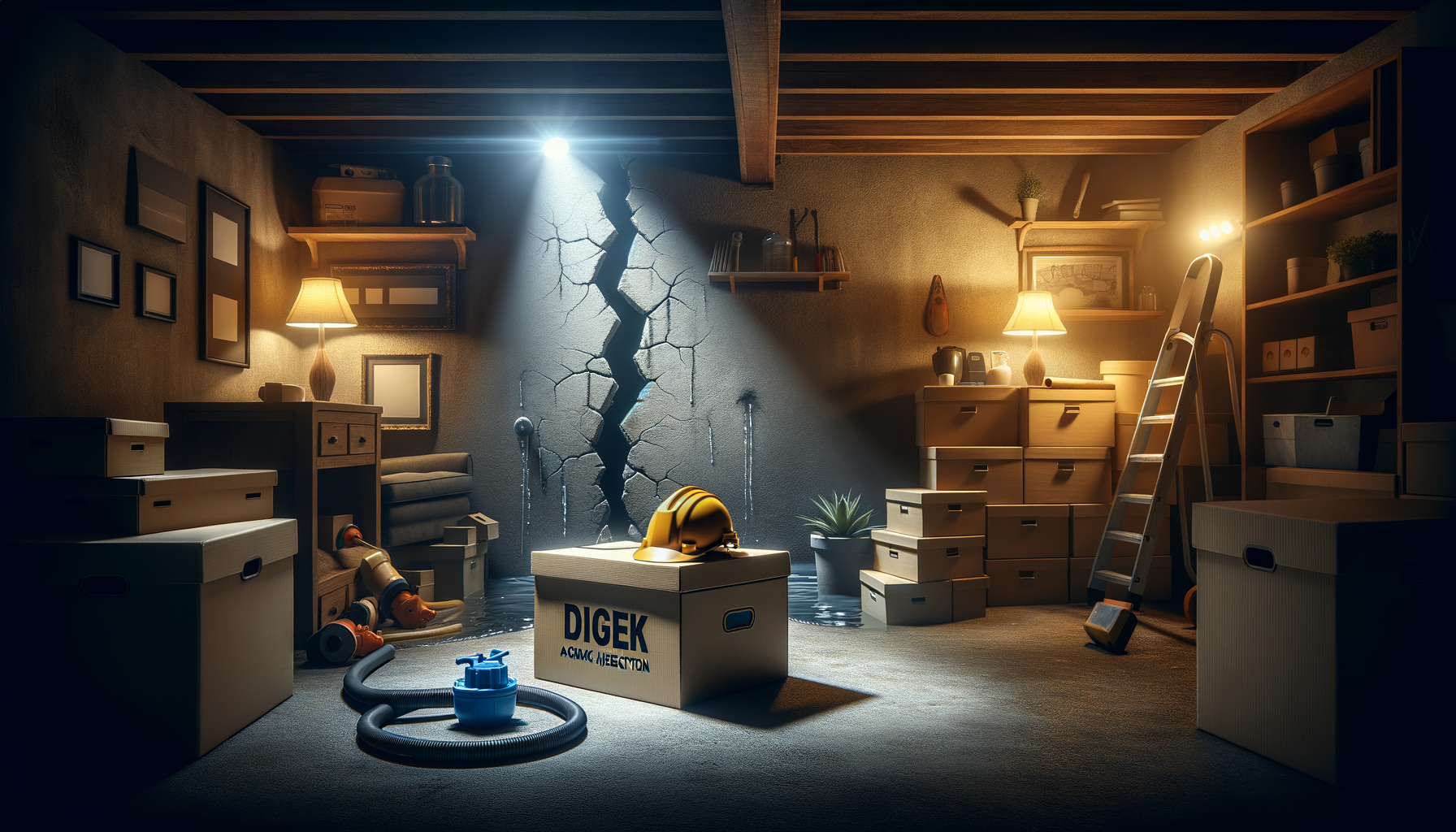Why Do Basements Leak?
- Bad Drainage: When rainwater doesn’t drain away from your house, it can build up around the foundation and cause leaks.
- Foundation Cracks: Cracks in the foundation allow water to seep in. These cracks can be caused by the house settling, temperature changes, or bad construction.
- Leaky Plumbing: Broken or leaking pipes can cause water to get into your basement over time.
- Pressure from Groundwater: When groundwater builds up, it can push water through cracks in your basement walls.
How to Tell If You Have a Basement Leak
- Water Stains: Look for brown or yellow stains on walls or floors.
- Musty Smell: A damp, musty odor might mean there’s hidden water somewhere.
- Mold and Mildew: If you see mold or mildew, it’s a sign of moisture problems.
- Peeling Paint: Bubbling or peeling paint can indicate water damage.
- Standing Water: Water pooling on the basement floor is a sure sign of a leak.
What Affects the Cost of Fixing a Basement Leak?
- How Bad the Damage Is: Small cracks cost less to fix than big structural problems.
- Type of Repair: Simple repairs cost less; more extensive fixes, like full waterproofing, cost more.
- Contractor Fees: Prices can vary based on where you live and the contractor’s experience.
- Materials: Using high-quality materials may cost more but can last longer.
Common Basement Leak Repair Methods and Their Costs
- Crack Injections: Sealing cracks with epoxy or polyurethane costs about $300-$700 per crack.
- Interior Waterproofing: Installing indoor drainage can cost between $3,000 and $10,000.
- Exterior Waterproofing: Digging around your house and adding waterproof barriers can cost $10,000 to $20,000.
- Sump Pump Installation: Sump pumps cost around $1,000 to $3,000 to install.
- French Drains: Adding a drainage system can cost between $5,000 and $15,000.
Should You Fix It Yourself or Hire a Professional?
-
DIY Pros:
- Save money on labor costs.
- Work on your own schedule.
-
DIY Cons:
- Might not fix the problem correctly.
- Can be time-consuming and tricky.
-
Professional Pros:
- Experts ensure the job is done right.
- Often come with warranties for peace of mind.
-
Professional Cons:
- More expensive because of labor costs.
- May need to wait for an appointment.
Choosing the Right Contractor
- Check Credentials: Make sure they are licensed and insured.
- Read Reviews: Look for feedback from previous customers.
- Get Multiple Quotes: Compare different options to find the best one for your budget.
- Ask About Warranties: This ensures you’re protected if problems come up after the repair.
Preventing Future Leaks
- Regular Inspections: Check for new cracks or moisture regularly.
- Gutter Maintenance: Keep gutters and downspouts clean and direct water away from your house.
- Proper Landscaping: Make sure the ground slopes away from your foundation.
- Use a Dehumidifier: This helps keep the basement dry and prevents mold.
Real Stories from Homeowners
- Jane’s Quick Fix: Jane found a small leak early and fixed it cheaply, avoiding big damage.
- Mike’s DIY Fail: Mike tried to fix the leak himself but made it worse. He had to pay more to hire a professional later.
- Sara’s Peace of Mind: Sara hired a good contractor who fixed her leak and gave her a warranty, which reassured her.
Why It’s Important to Fix Basement Leaks Quickly
If you ignore basement leaks, they can cause big problems like structural damage, mold growth, and health issues. Fixing leaks early can save money and keep your home safe and dry.
By understanding the costs and repair options, homeowners can make smart choices about keeping their basements leak-free.


Leave a Reply